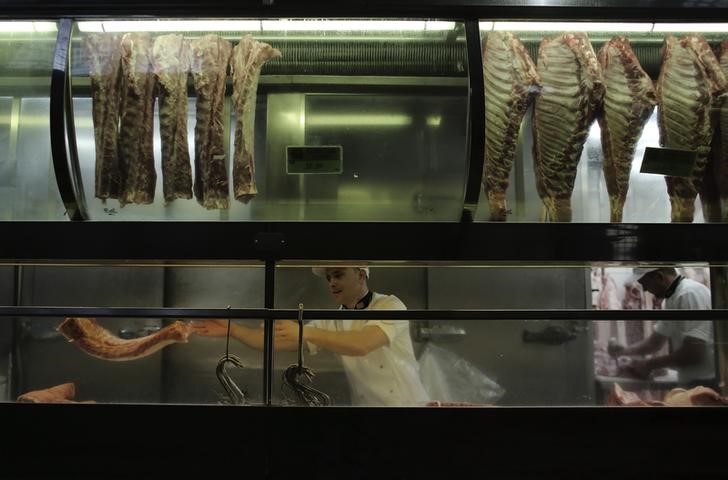By Keith Coffman
DENVER, Dec 31 (Reuters) - Nearly 200 workers, mostly Somali
immigrants, have been fired from a meat-packing plant in
Colorado after staging a walkout to protest what they said were
insufficient prayer accommodations, the company and Islamic
advocacy groups said on Thursday.
The Council on American-Islamic Relations (CAIR) said the
workers were treated in a "discriminatory manner" by managers at
the Cargill Meat Solutions CARGIL.UL facility in Fort Morgan,
about 75 miles northeast of Denver.
Jaylani Hussein, a spokesman for CAIR, said in a YouTube
video posted by the group that the workers objected to new
restrictions on their ability to worship on the job, "which they
had been granted for a long period of time."
"All of these employees are good employees (and) don't have
any other issues," Hussein said, adding that the dispute stemmed
from a "misunderstanding on policy changes" by Cargill regarding
workplace prayer.
Mike Martin, a spokesman for Minneapolis-based Cargill,
disputed assertions the company had changed its policy, noting
that since 2009 the Fort Morgan plant has set aside an on-site
"reflection area" for people of all faiths.
"Cargill makes every reasonable attempt to provide religious
accommodations to all employees based on our ability to do so
without disruption to our beef-processing business," he said. He
said the degree of flexibility the company can extend for
prayers depends on a variety of factors, including daily
work-flow considerations.
Martin said about 200 workers walked off the job last week
and were warned that failing to show up for work on three
consecutive days without calling in could jeopardize their
employment.
Plant managers met with the workers, members of the Somali
community and Teamsters union leaders who represent nearly 2,000
hourly workers at the plant but were unable to resolve the
issue, he said.
After 190 workers failed to show up without notice for three
days straight, "termination procedures were initiated" and those
workers were dismissed, Martin said.
Omar Jamal, executive director of the Somali Human Rights
Commission, said Cargill managers may not have understood that
depending on the time of year Muslims are required to pray at
different times during the day.
Jamal said his organization has contacted Cargill to see if
the workers can get their jobs back.
"Hopefully, there can be a clear policy in place that
everyone understands that would solve the problem," he said.
Cargill employs 155,000 people in 68 countries, according to
the company's website.
(Editing by Steve Gorman and Leslie Adler)
